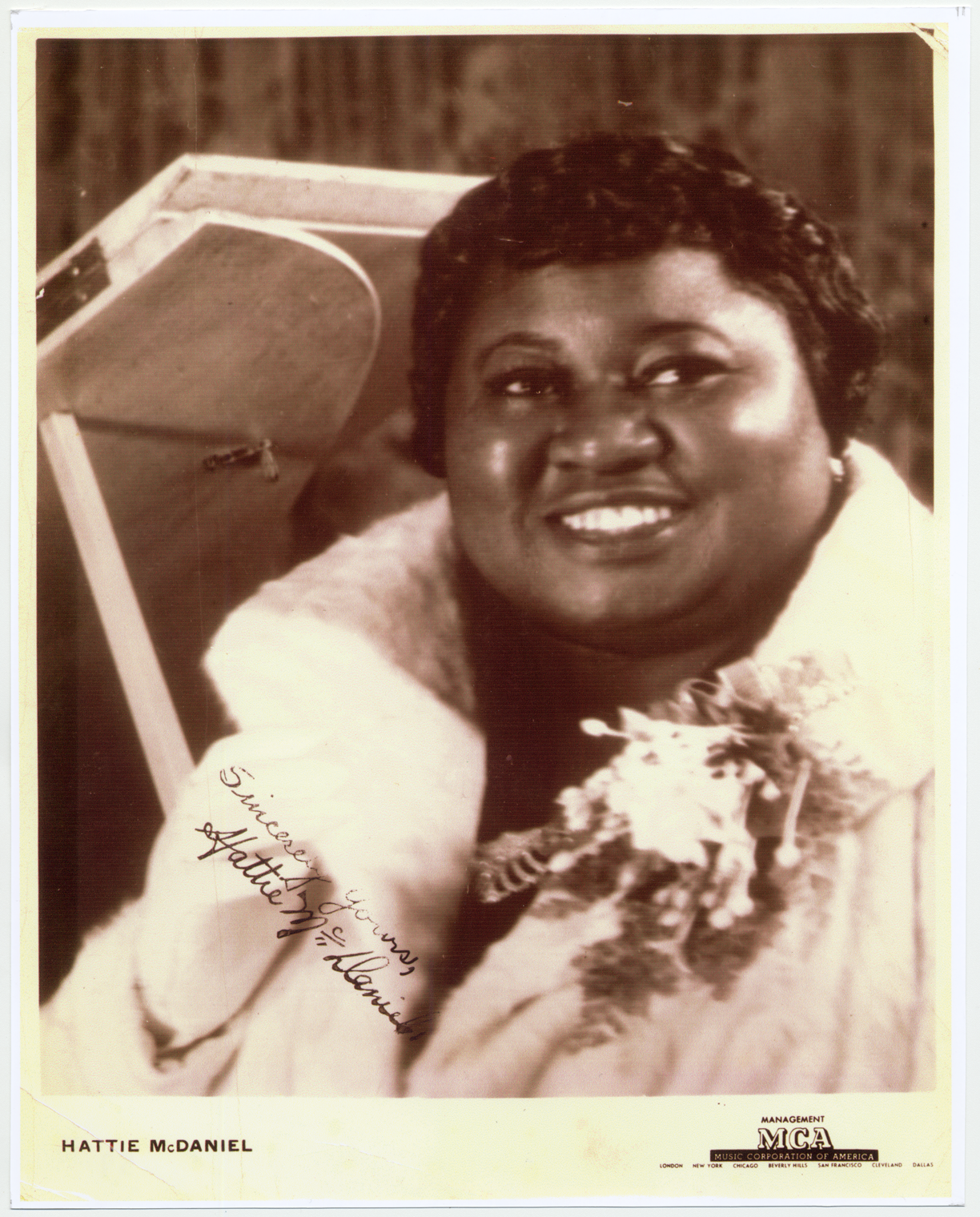Hattie McDaniel, c. 1940

About
Hattie McDaniel is the first Black actor to receive an Academy award for her portrayal of Mammy in the 1939 film Gone with the Wind. Her long and illustrious career was marked by racism, typecasting, and criticism from both white and Black people, all the way up to her death in 1952, when she was unable to be laid to rest at the Hollywood Cemetery, who practiced racial segregation at the time.
In Cheryl Dunye’s 1996 film The Watermelon Woman, the main character, a young filmmaker working as a video store clerk, becomes fascinated with a Black actress playing a mammy character in a 1930s film called Plantation Memories, and decides to make a documentary on her search for the woman’s identity.
Tags: Film, Activism
Additional Notes
“The problem is I don't know what I want to make a film on. I know it has to be about black women; because, our stories have never been told. So, I've been renting movies for - no, I haven't been "renting" movies - but, I get movies from the video store that I work at. And I've taken all these films out from the 30s and 40s with black actresses in them. Like, Hattie McDaniel and Louise Beavers. And in these films, in some of the films, the black actresses aren't even listed in the credits. I know, I was just totally shocked by that.” - Cheryl Dunye, The Watermelon Woman (1996)
Further watching
Watermelon Woman (1996), dir. Cheryl Dunye

